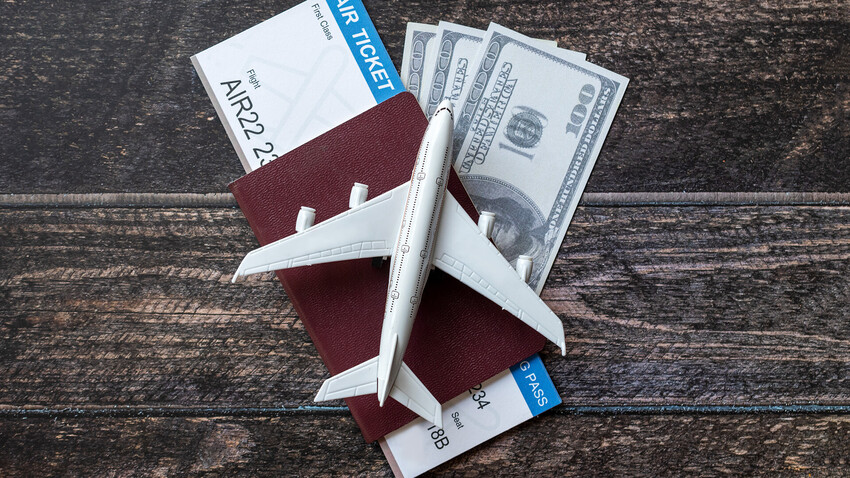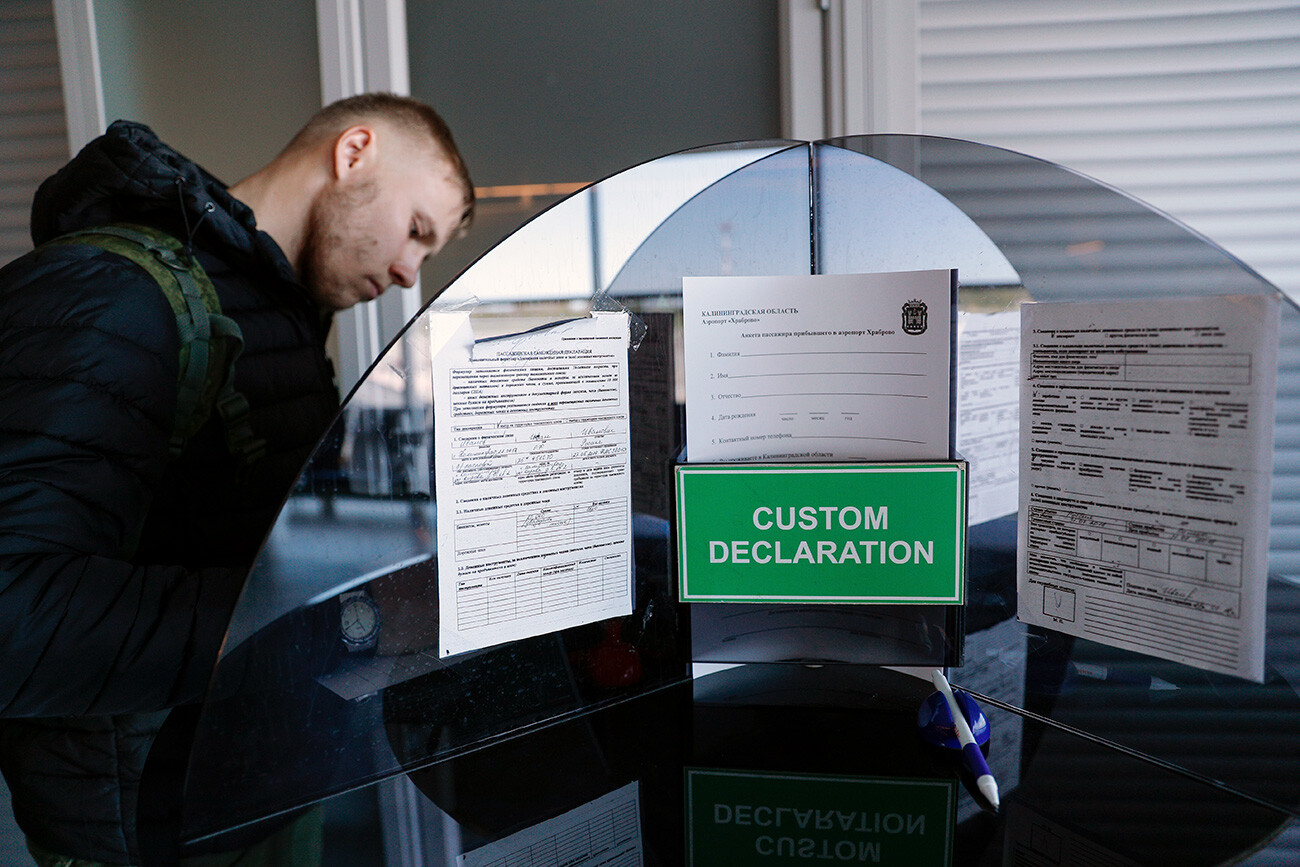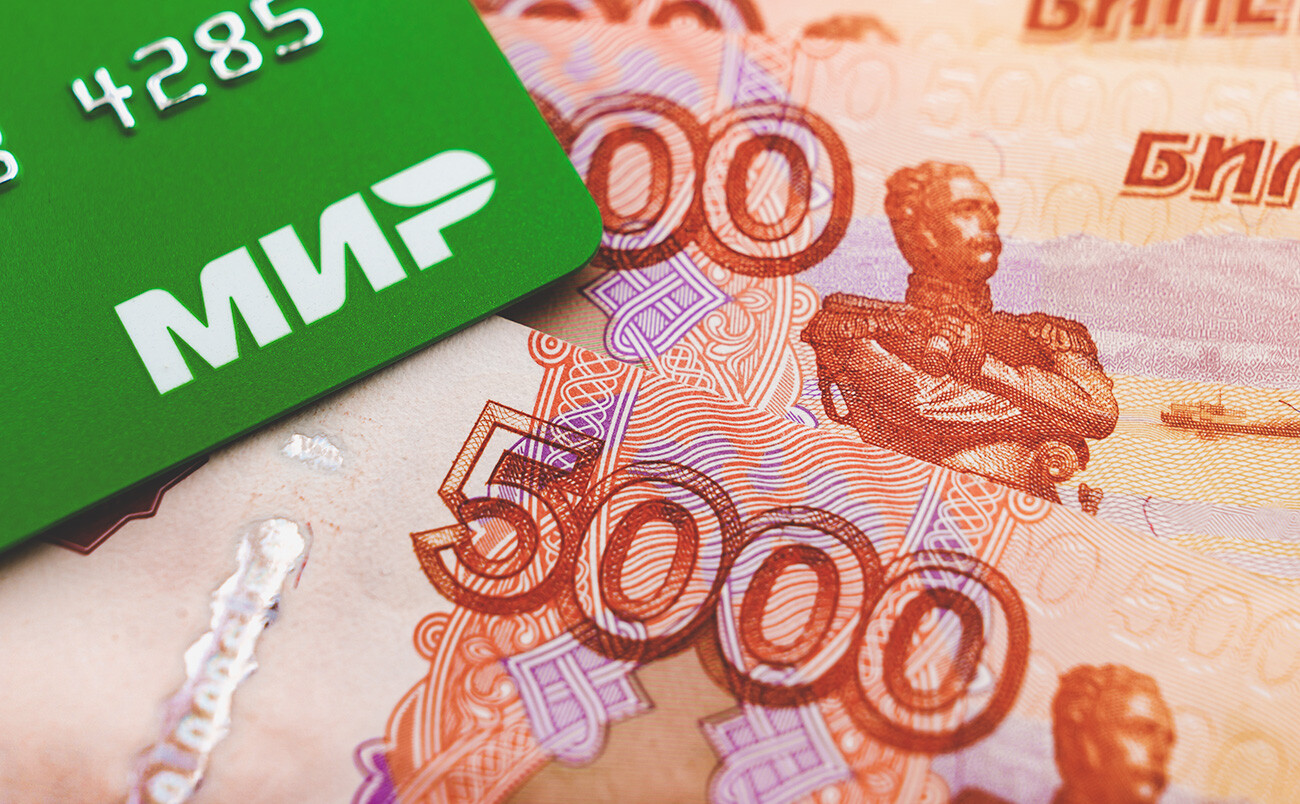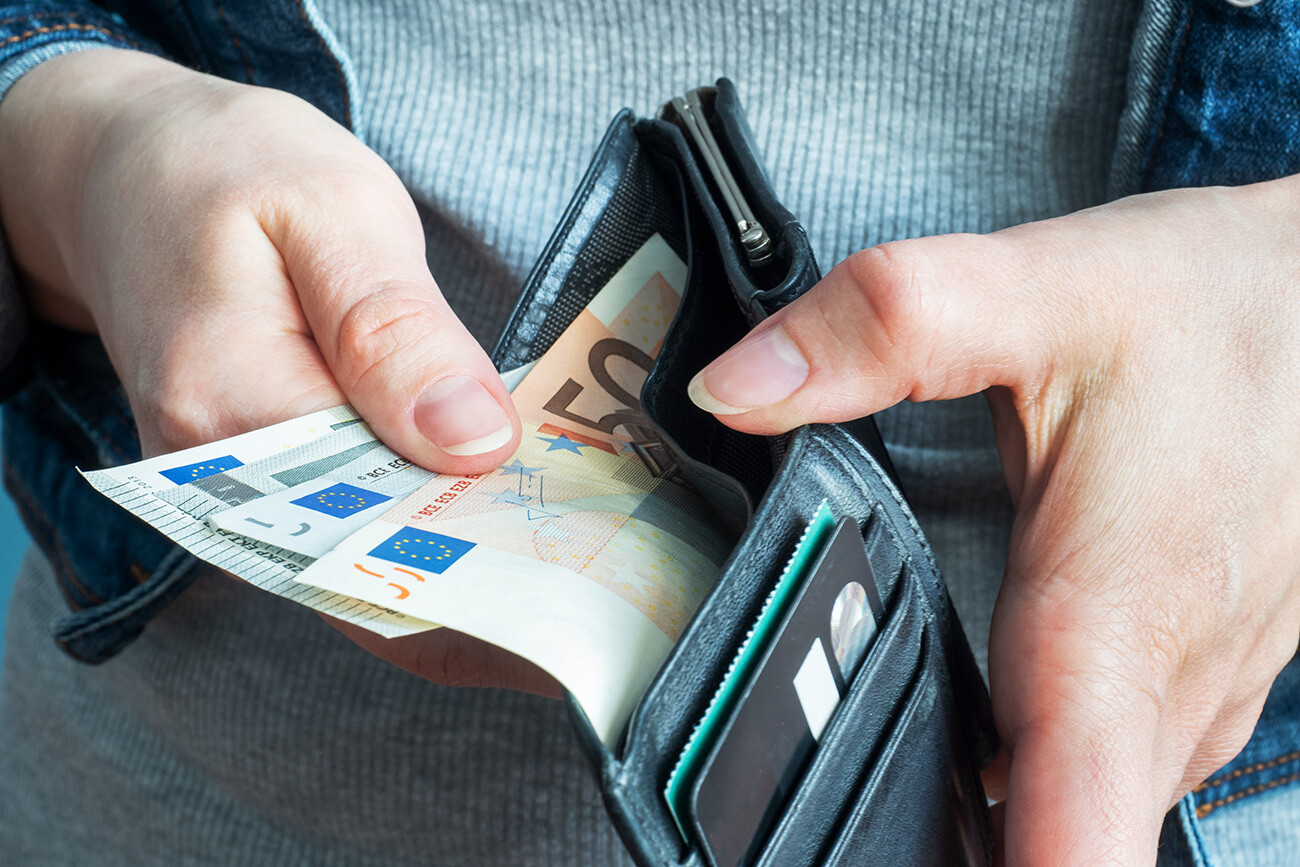
After sanctions were imposed, major international financial companies suspended their operations in Russia. Therefore, Visa, MasterCard and American Express cards can no longer be used to pay in a store or withdraw cash from an ATM. Because of this, tourists and business people have to look for alternative ways of paying or obtaining money.

You are allowed to bring dollars, pounds, euros, yen and other currencies into Russia. However, amounts greater than the equivalent of $10,000 in cash at the exchange rate of the Central Bank of the Russian Federation on the day of crossing the border must be declared. In the declaration, it is necessary to specify the entire amount carried, not only the difference exceeding the limit.
If a traveler is bringing an amount equivalent to more than $100,000 in cash, it will be necessary to explain the origin of the money. For this purpose, a certificate of income, a gift agreement, a certificate of acceptance of inheritance will do. The same rules apply not only to cash currency, but also to other monetary instruments: bills of exchange, checks, bonds in documentary form. Money on bank cards and accounts does not need to be declared.
Passengers with funds over $10,000 pass with completed declarations through the red corridor at customs. Penalties for violating the rules are serious enough – you can lose up to a multiple of the amount carried over the limit, while confiscation of funds and criminal punishment are also possible (depending on the amount). The rules are the same for both air and land borders.
It is also worth remembering that the country from which you will be bringing money into Russia may have its own restrictions on the export of funds. So travelers need to take into account the rules of all upcoming customs controls.
If you plan to leave Russia later, it's necessary to clarify in advance what the limit on cash currency export will be on the date of departure. At the time of publication, there is a ban on the export of cash currency over the equivalent of $10,000; and while it is possible to take out rubles for larger amounts, you must declare it.
Minors are considered to be separate passengers and cash can be distributed between them and their parents within the established limits. That is, for example, if a family of mother, father and child is traveling, they can bring $30,000 in cash currency without declaration with them.

To make a money transfer to Russia and then pay within the country, it is possible to open an account in a Russian bank and be issued a MIR (Russian payment system) debit card. Foreign citizens have the right to open a Russian bank account in any currency, if the bank has the appropriate license. However, banks generally only conduct transactions in dollars and euros.
To open an account, a foreigner needs to provide the bank with the following:
Since July 2023, citizens of CIS countries, UAE, Turkey, China, India and some other countries can send these documents remotely – via an intermediary bank in their country. The local bank accepts the necessary documents from the client, checks them and sends them to the Russian bank.
Before transferring funds to an account in a Russian bank, it is necessary to check with the bank of origin whether it conducts transfers to Russia, clarify the amount of commission and be prepared for possible delays in said transaction. In addition, you will only be able to receive a currency transfer in cash after converting it into rubles.
If a foreigner plans to open a bank account and top it while already in Russia, then large, well-known banks are best suited. You will be able to open an account, receive a MIR debit card and immediately be able to deposit the dollars or euros you brought with you, which are converted into rubles, into it via the bank’s cash desk. After this, you can pay with your MIR debit card as usual and link it to any online or app services; for example, taxis, food delivery, etc.
If a transfer to your Russian account is planned from abroad via the SWIFT system, then you should pay attention to banks that have not been subject to strict sanctions and that have not been disconnected from SWIFT. In each specific case, you need to clarify whether the foreign bank works with Russia, whether the Russian bank accepts payments via SWIFT, the size of the commission, the minimum amounts and currency of the transfer (some banks do not accept dollars and euros, but accept yuan), as well as the duration of the transaction (usually, the commission is 1-5%, up to seven working days).

For money transfers to Russia, you can also use such payment services as ‘Koronapay’ and ‘Unistream’ (mainly works with CIS countries; from European countries the list of counterparties includes Greece, Cyprus and Serbia; the service does not work with the U.S. or Canada), but, before the transaction, you need to check on the official website whether the service still operates with the sending country, the size of the transfer fee and the limit on the transfer. For transfers from Europe and Great Britain, there is ‘Profee’ service, however, this service also does not work in the U.S.
Another service, 'ЮMoney' (YuMoney), issues free instant MIR debit cards to foreign tourists directly at Moscow's Sheremetyevo airport or in its offices in Moscow, St. Petersburg and Nizhny Novgorod. To speed up the process, it is possible to register for the service online before arriving in Russia. A tourist can exchange currency at the airport and credit the rubles received without commission to their card via a Sberbank ATM. Up to 15,000 rubles (approx. $167) can be deposited at one time and up to 600,000 rubles (approx. $6,667) per day.
Dear readers,
Our website and social media accounts are under threat of being restricted or banned, due to the current circumstances. So, to keep up with our latest content, simply do the following:
If using any of Russia Beyond's content, partly or in full, always provide an active hyperlink to the original material.
Subscribe
to our newsletter!
Get the week's best stories straight to your inbox